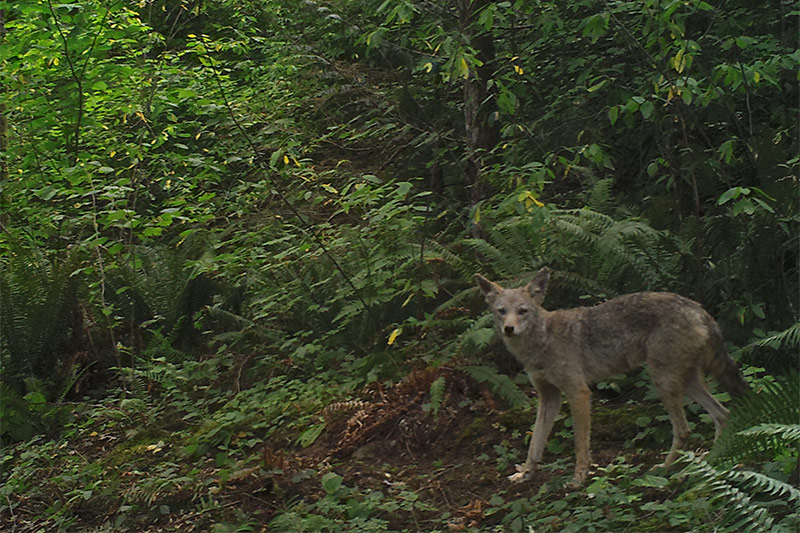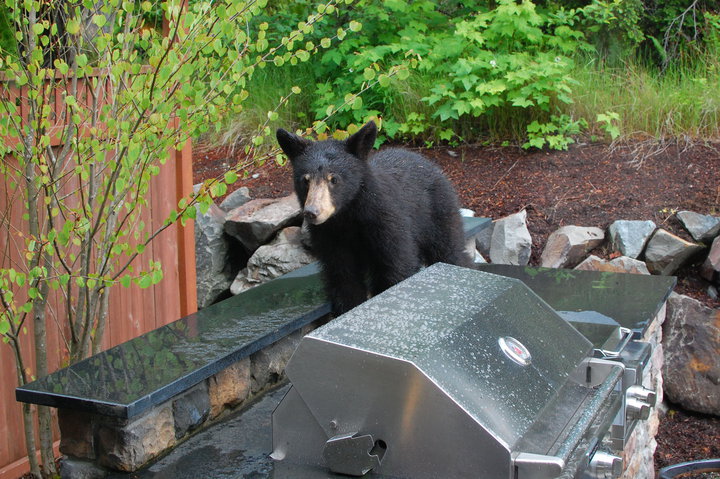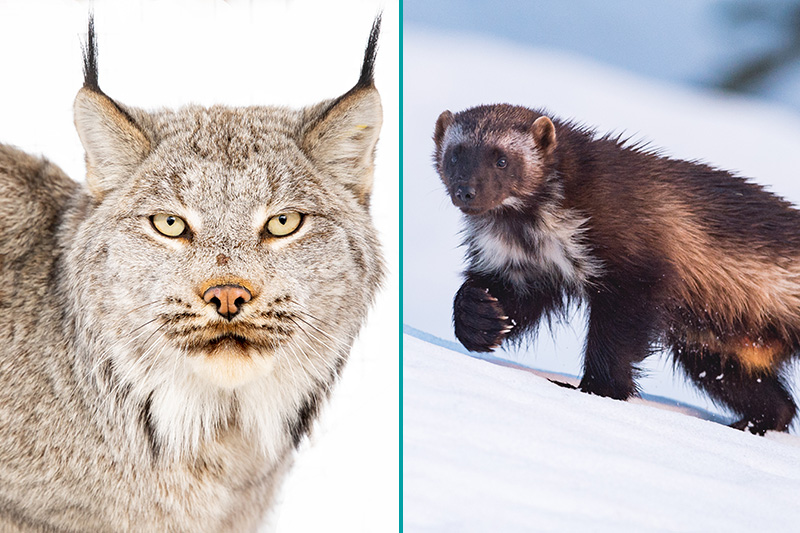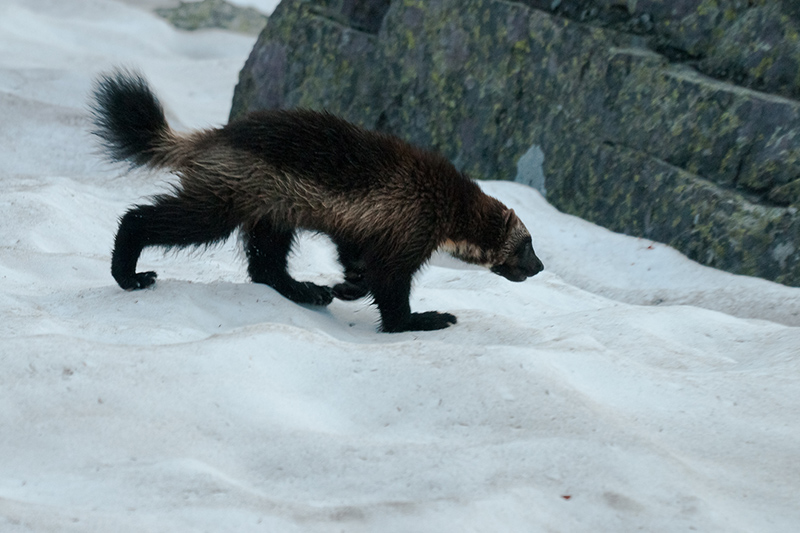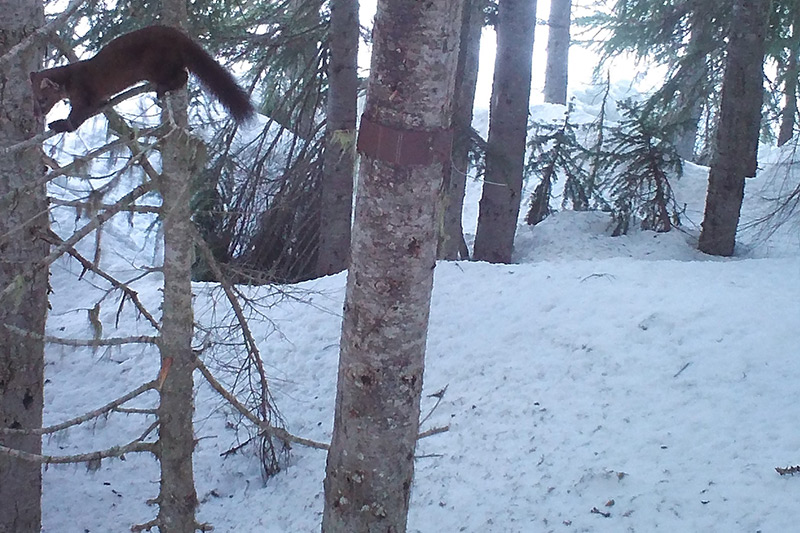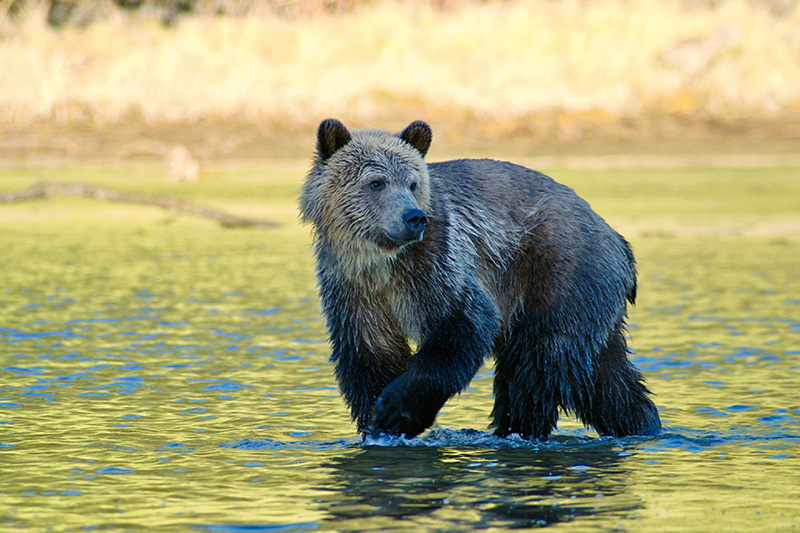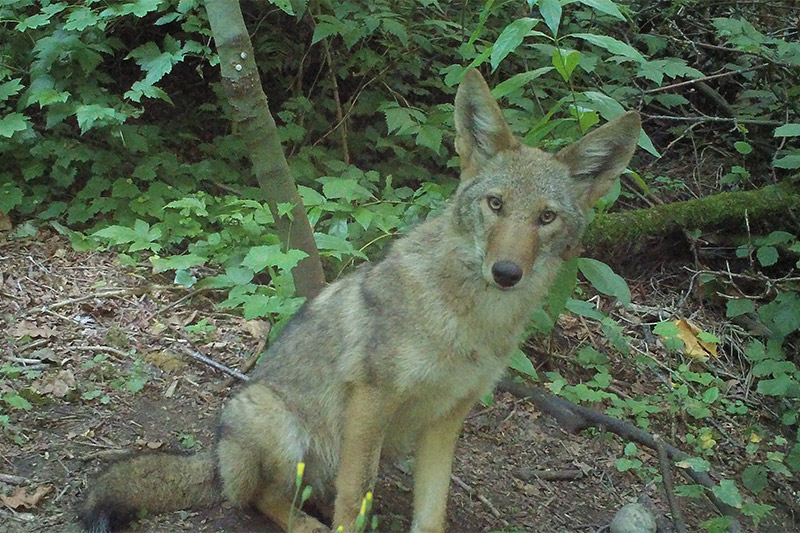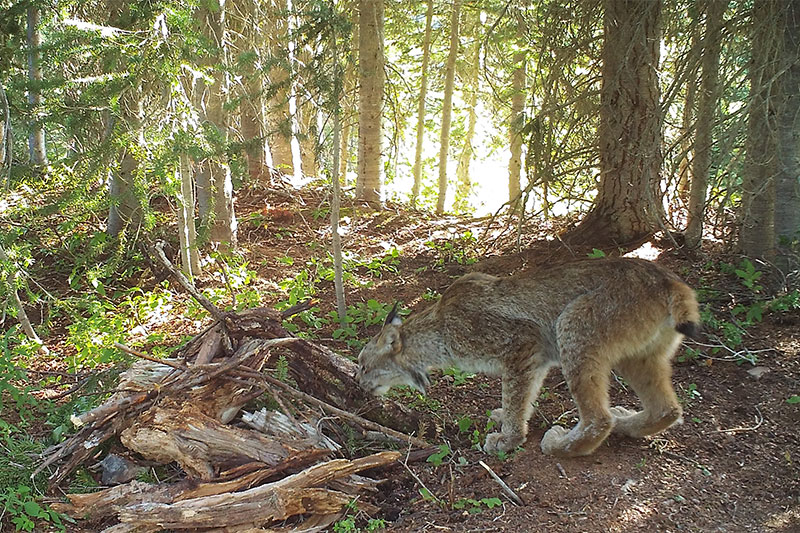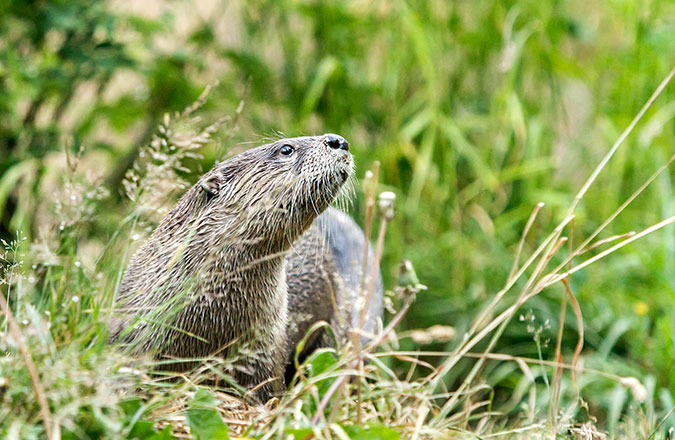
CARNIVORE CONSERVATION
NORTHWEST CARNIVORE SCIENCE & CONSERVATION PROGRAM
Working for a wild future for Northwest carnivores
ABOUT THE PROJECT
Mammalian carnivores, from big cats to gray wolves, are often apex predators who help regulate prey populations and have profound effects on ecosystems. Most carnivores live at naturally low densities and need large, secure areas of connected habitats to survive.
Due to its interconnected wild spaces and largely intact ecosystems, the Pacific Northwest is one of the only regions in the contiguous US still capable of supporting a full suite of native carnivores. This region hosts a rich assemblage of rare and elusive carnivores, including wolverines, Canada lynx, cougars, Cascade foxes, gray wolves, and—hopefully one day again soon—grizzly bears. More human-adapted carnivores, like coyotes, black bears, and bobcats, can inhabit suburban or even urban areas, sharing the landscape with millions of people.
Carnivores in the Pacific Northwest experienced a long legacy of persecution in the 19th and 20th centuries. This historical blow was compounded by habitat loss and fragmentation, with many populations drastically reduced in number. Wolverines, wolves, and fishers, for example, were driven to regional extinction and are still in the process of recovery. Canada lynx currently maintain a foothold in the North Cascades but are at risk of being lost if catastrophic wildfires continue to decimate subalpine forests. Climate change poses new threats to lynx, wolverines, and many other wildlife species.
Woodland Park Zoo’s Northwest Carnivore Science and Conservation Program spearheads scientific research and community engagement to restore and protect carnivores and enhance our ability to coexist.
